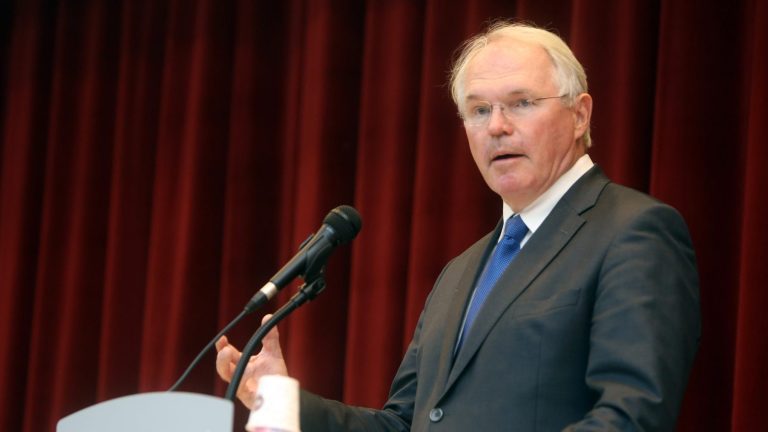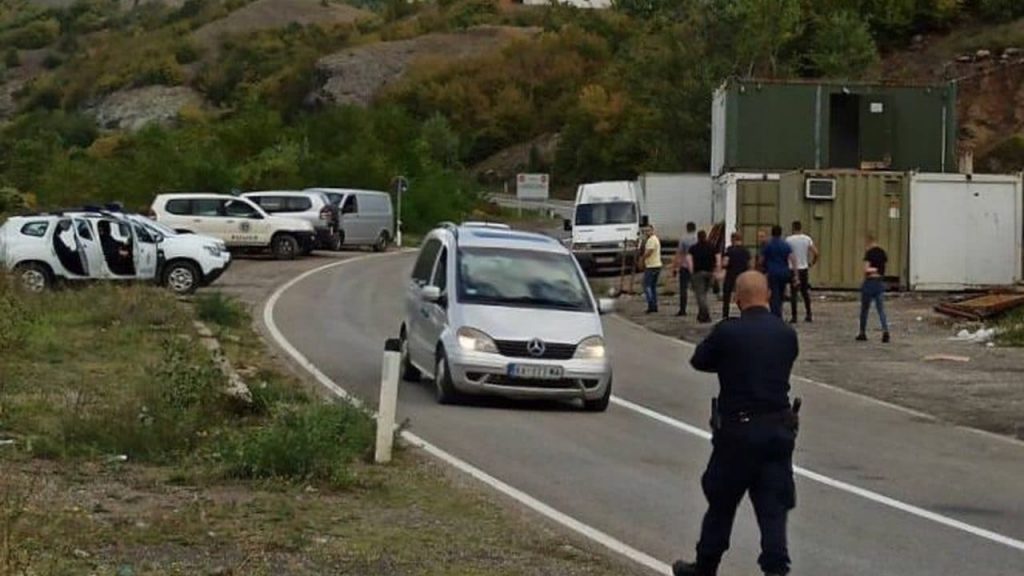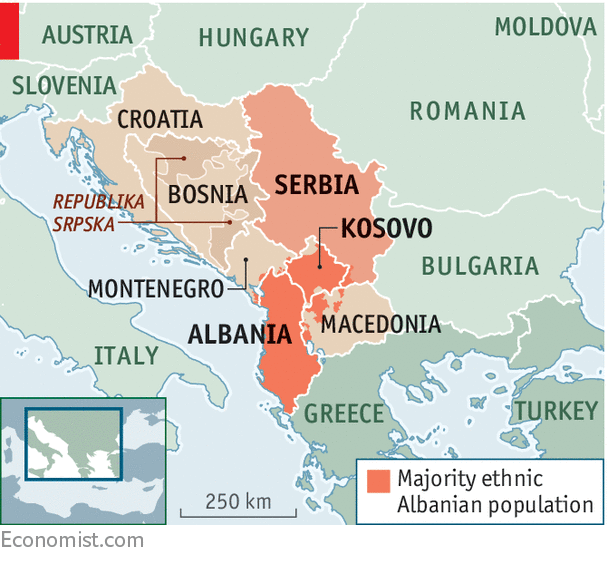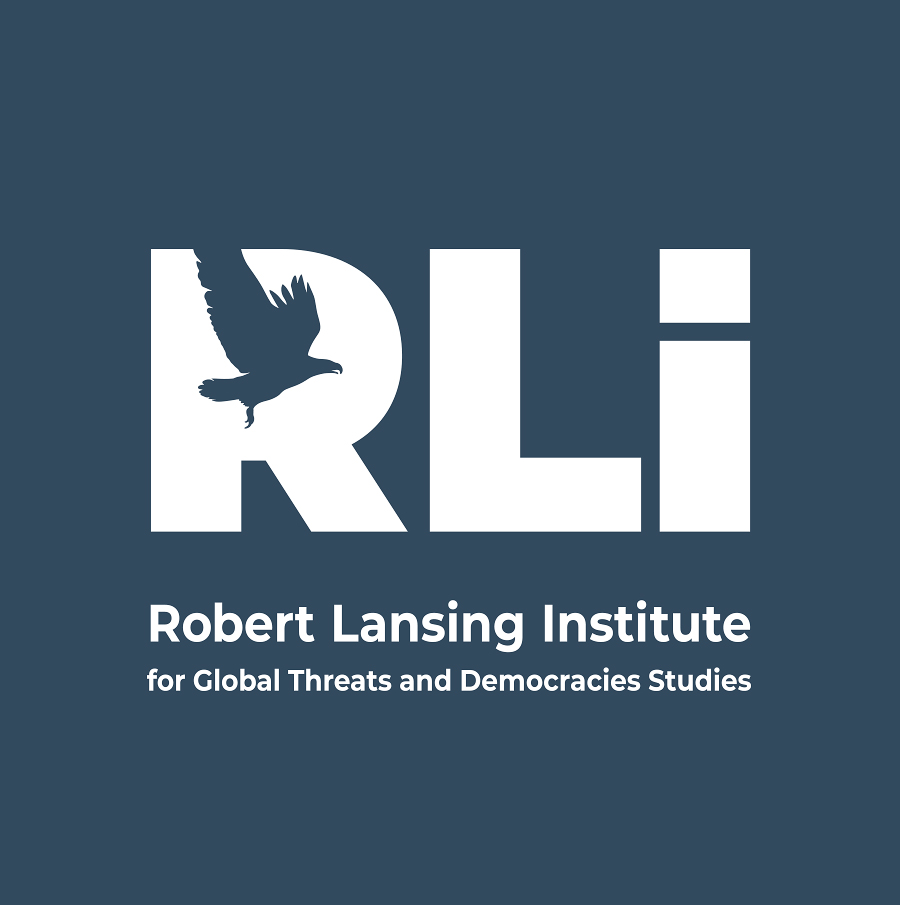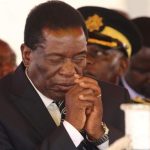Recent events in the Balkans, particularly in Montenegro, Kosovo – Serbia, Bosnia and Herzegovina – give the impression to have been a reason for intensified diplomatic activity of the United States and European Union in Western Balkans. The EU’s delay in integrating this part of the Balkans is a mistake which is risking a possible conflict with even greater consequences for the EU in future.
The lack of a strategy for Balkans integration in EU is leaving gap for countries like Russia to exercise its destructiveness in countries where has influence, as in the case of Serbia in relation to Kosovo and Republika Srpska (RS) in BaH. RLI in the article Genocide denial in Srebrenica can lead to new conflicts had warned in early August that rhetoric of BaH presidency member from RS, Milorad Dodik, who has repeatedly denied the genocide in Srebrenica and has preference for the separation of RS from BaH, can lead the latter into an armed conflict. Dodik has recently sought for military support from his friend state Russia, he also hopes for the support of Serbian state. This for the fact that Vucic often knows how to warm up the situation for conflicts, dissolution of BaH had been warmed up from Vucic too, indirectly through other politicians, as in the last case when former Serbian Prime Minister Ivica Dacic stated that Dodik has the full support of official Belgrade. Such situations in most cases then gives Vucic the opportunity to play the peacemaker, by coming out to “calm down” the chaos created himself.
In latest protest this September in Montenegro against consecration of the Serbian Orthodox Church Metropolitan Joanikije, but also in the events in Northern Kosovo for the imposition of reciprocity with Serbia for vehicle license plates there were Russian intelligence footprints. In the case of establishing Kosovo’s reciprocity with Serbia, three Russians were detained and their suspicious cyber assets confiscated by Kosovo Police. Recently, two Russian Liaison Office in Kosovo officials were declared “non grata” persons by Kosovo Government. According to the Ministry of Foreign Affairs announcement, these persons have been declared unwanted for harmful activities on their part, which has violated the national security and the constitutional order of the Republic of Kosovo.
The Russian intel services infiltration consequences in Balkans will be larger, if the EU does not speed up the membership procedures for countries at the high risk possibility for conflict. This has led the Biden administration to step up the US diplomacy and turn its attention to the region, in order to keep Russian influence away. New appointments of the US ambassadors in Balkans, are a clear signal that US is interested in helping the situation and find solutions, especially for Kosovo and Serbia, but also for BiH, due to the fact that US diplomat Christopher Hill has been appointed ambassador to Serbia, replacing the former ambassador Anthony Godfrey who served in Belgrade since October 2019.
Hill is considered one of the most important US diplomats and a well-versed expert on the Western Balkans. He was the successor to Richard Holbrooke, the chief US negotiator in the 1995 Dayton Accords, which ended the war in Bosnia and Herzegovina. Hill was also the US ambassador to Macedonia in 1996 and then the US special representative in Kosovo in 1998-1999, when peace was being negotiated between Serbia and the Kosovo Liberation Army.
Prior to the resumption of negotiations between Kosovo and Serbia, the latter is being given clear messages to be aware that the EU is the only path Serbia should follow. The US special diplomat for the Balkans, Gabriel Escobar, before a possible visit, considered US-Serbian relations “complicated” meanwhile he had given a clear message to Serbia, highlighting that the President of Serbia, Aleksandar Vucic, will have the United States support as long as he continues to follow the Western and European path. When US Government wants major changes in the Balkans political landscape, it recruits its ‘diplomatic bulldozers’ such as Escobar and Chris Hill. Chris Hill is known for its diplomatic efforts to bring down Milosevic and his attitudes of tough diplomacy during late 90s which led to NATO intervention in former Yugoslavia, ending Serbian rule over Kosovo.


